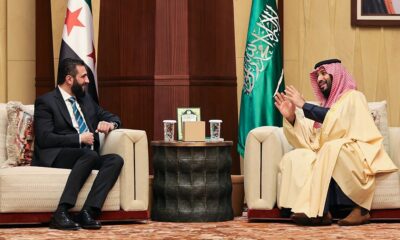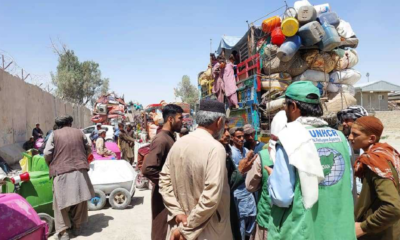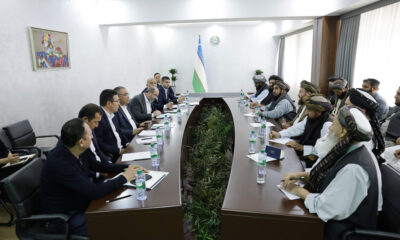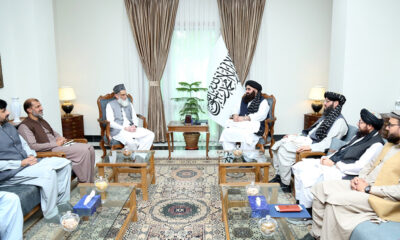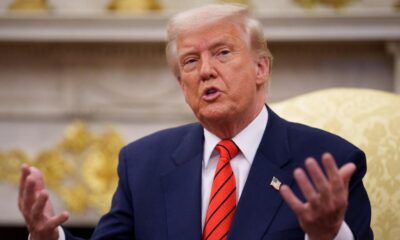World
Raisi says Iran ready for nuclear talks, but rejects Western ‘pressure’
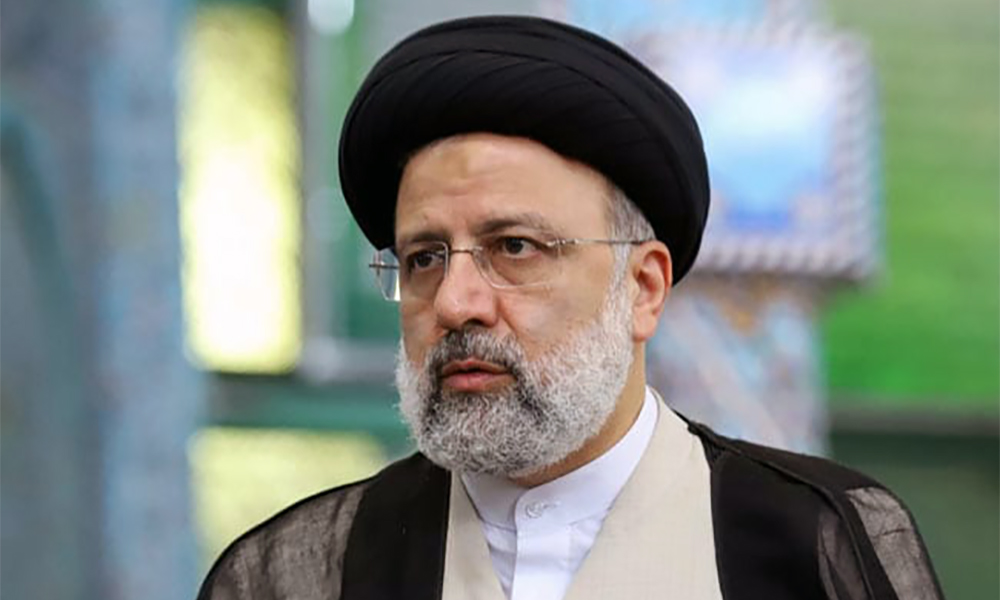
Iranian President Ebrahim Raisi said on Saturday (September 4) Iran was ready to hold talks with world powers to revive its 2015 nuclear accord but not under Western “pressure”, adding Tehran was seeking negotiations leading to a lifting of U.S. sanctions, Reuters reported.
“I have already announced that we will have talks on our government’s agenda but not with … pressure,” Raisi said in a live interview with state television.
“Talks are on the agenda … We are seeking goal-oriented negotiations … so sanctions on the Iranian people are lifted,” Raisi said.
According to report France and Germany have urged Iran to return to negotiations after a break in talks following Iranian elections in June, with Paris demanding an immediate restart amid Western concerns over Tehran’s expanding atomic work.
Last month, France, Germany and Britain voiced concern about reports from the U.N. nuclear watchdog confirming Iran has produced uranium metal enriched up to 20% fissile purity for the first time and lifted production capacity of uranium enriched to 60%, the report said.
Iran says its nuclear programme is peaceful, that it has informed the watchdog about its activities, and that its moves away from the 2015 deal would be reversed if the United States returned to the accord and lifted sanctions.
Raisi also said events in Afghanistan showed America was a disruptive influence around the world, Reuters reported.
“Afghanistan clearly showed within these two decades that the US presence has caused a lot of the rights of the Afghan people to be ignored. What has happened is against human rights, and this can be analysed by all,” he added.
World
EU to boost financial support for Palestinian Authority
The European Commissioner for the Mediterranean, said the financial support would go hand in hand with reforms of the Palestinian Authority
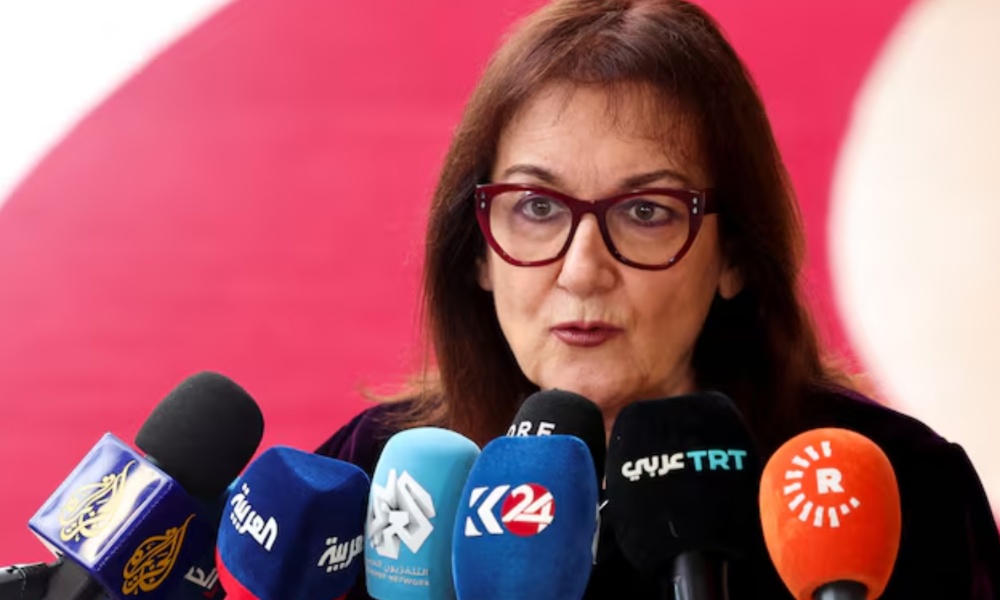
The European Union will increase its financial support for the Palestinian Authority with a three-year package worth around 1.6 billion euros ($1.8 billion), the European Commissioner responsible for the Middle East told Reuters in an interview.
Dubravka Suica, the European Commissioner for the Mediterranean, said the financial support would go hand in hand with reforms of the Palestinian Authority, which has been accused by critics of corruption and bad governance.
“We want them to reform themselves because without reforming, they won’t be strong enough and credible in order to be an interlocutor, not for only for us, but an interlocutor also for Israel,” Suica said.
The commissioner’s remarks came ahead of a first “high-level political dialogue” between European Union foreign ministers and senior Palestinian officials including Prime Minister Mohammad Mustafa in Luxembourg on Monday.
The EU is the biggest donor to the Palestinians and EU officials hope the Palestinian Authority, which runs the West Bank, may also one day take responsibility for Gaza after the war between Israel and Hamas militants comes to an end, Reuters reported.
Israeli Prime Minister Benjamin Netanyahu’s government, however, has so far rejected the idea of handing over Gaza to the PA and shunned the EU’s broader aim of a two-state solution, which would include the establishment of a Palestinian state.
Suica said 620 million euros would go to financial support and reform of the PA, 576 million euros to “resilience and recovery” of the West Bank and Gaza and 400 million euros would come in loans from the European Investment Bank, subject to the approval of its governing body, Reuters reported.
She said average EU support for the PA had amounted to about 400 million euros over the past 12 years.
“We are investing now in a credible manner in the Palestinian Authority,” Suica said.
I think that the United States Steel one of the great companies of the world should remain in our country.
World
Trump says Ukraine talks may be going OK, but there is a time ‘to put up or shut up’
Trump has shown signs of losing patience and has spoken of imposing secondary sanctions on countries that buy Russian oil if he feels Moscow is dragging its feet on a deal.
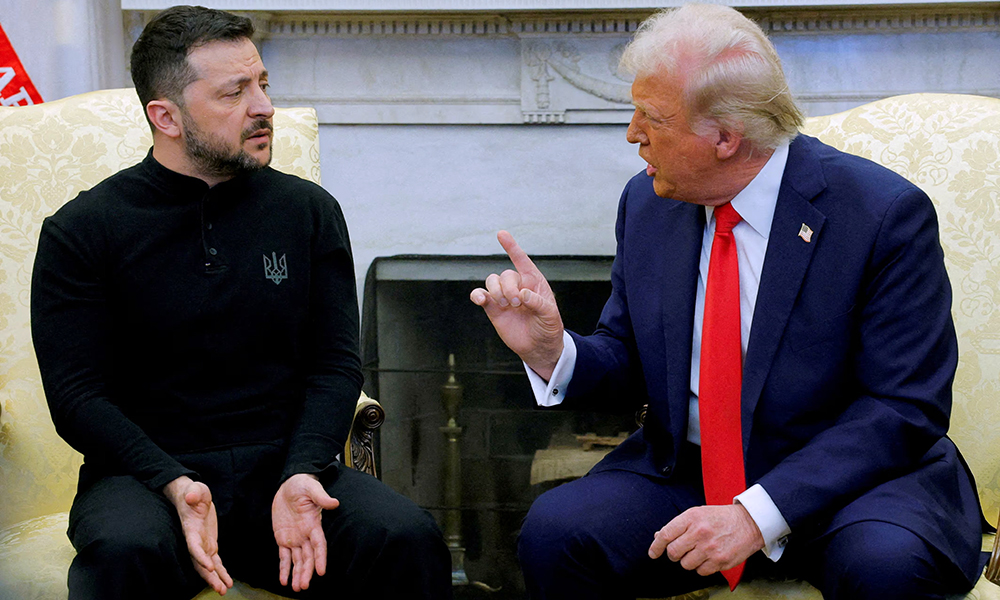
U.S. President Donald Trump said on Saturday that talks aimed at ending the war in Ukraine may be going OK, but “there’s a point at which you just have to either put up or shut up.”
Trump made the comment to reporters a day after he showed frustration with Russia and told it to “get moving” on reaching a deal.
“I think Ukraine-Russia might be going OK, and you’re going to be finding out pretty soon,” Trump told reporters on Air Force One, while adding:
“There’s a point at which you just have to either put up or shut up and we’ll see what happens, but I think it’s going fine.”
On Friday, Trump’s special envoy Steve Witkoff held talks with Russian President Vladimir Putin about the search for a peace deal.
The talks came at a time when U.S.-Russia dialogue aimed at agreeing a ceasefire ahead of a possible peace deal to end the war appeared to have stalled over disagreements around conditions for a full pause in hostilities.
Trump has shown signs of losing patience and has spoken of imposing secondary sanctions on countries that buy Russian oil if he feels Moscow is dragging its feet on a deal.
Earlier on Saturday, Russian Foreign Minister Sergei Lavrov praised Trump for what he said was a better understanding of the Ukraine conflict than any other Western leader.
“When we speak about eliminating root causes of any conflict, including the Ukrainian conflict, this is the only way to resolve the problem and to establish long-lasting peace. Remove root causes,” Lavrov said at the Antalya Diplomacy Forum in southern Turkey.
“President Trump was the first and so far, I think, almost the only one among the Western leaders who repeatedly, with conviction, several times stated that it was a huge mistake to pull Ukraine into NATO. And this is one of the root causes which we quoted so many times.”
Putin, who launched Russia’s invasion of Ukraine in February 2022, has long cast Ukraine’s tilt to the West, including its desire to join NATO, as a threat to Russia.
Commenting on an agreement between Ukraine and Russia to pause strikes on each other’s energy facilities, Lavrov said that Moscow has been keeping its word and accused Kyiv of striking Russian energy infrastructure almost every day.
“I gave to our colleagues from Turkey, to (Foreign) Minister (Hakan) Fidan, what we gave to the Americans, to the U.N., to the OSCE – the list of facts listing the attacks by Ukraine during the last three weeks against Russian energy infrastructure.”
Ukraine has made similar accusations against Russia since the U.S.-backed moratorium was approved.
World
White House says ‘all hell to pay’ should Iran develop nuclear weapon

President Donald Trump wants Iran to know that there will be “all hell to pay” if it does not abandon its nuclear program, his press secretary told reporters on Friday ahead of talks on Saturday between U.S. and Iranian delegations.
White House press secretary Karoline Leavitt said Trump’s “ultimate objective is to ensure that Iran can never obtain a nuclear weapon” and that Trump believes in diplomacy, but that “all options are on the table” if diplomatic efforts fail, Reuters reported.
“But he’s made it very clear to the Iranians, and his national security team will as well, that all options are on the table, and Iran has a choice to make. You can agree to President Trump’s demand, or there will be all hell to pay, and that’s how the president feels. He feels very strongly about it,” Leavitt said.
U.S. special envoy Steve Witkoff is set for talks on Saturday with an Iranian delegation in Oman. Iranian state media said Iran would be represented by Foreign Minister Abbas Araqchi, with Omani Foreign Minister Badr al-Busaidi as intermediary.
Trump in February restored his “maximum pressure” campaign on Iran, which includes efforts to drive its oil exports down to zero, in order to stop Tehran from obtaining a nuclear weapon. He said earlier this week that if the talks are unsuccessful, “Iran is going to be in great danger.”
-

 Regional5 days ago
Regional5 days agoAre B-2 bombers a message to Iran? ‘We’ll let them decide,’ Pentagon chief says
-
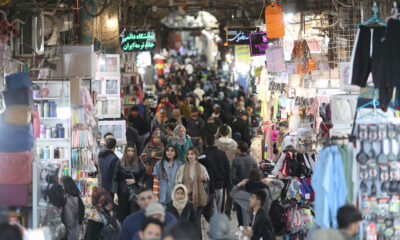
 Regional5 days ago
Regional5 days agoAnxious Iranians hope nuclear talks may ease risk of US attack
-
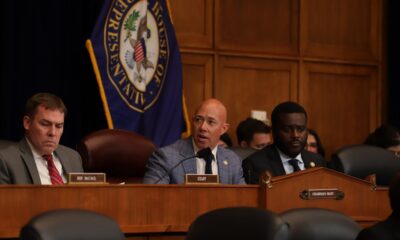
 Latest News5 days ago
Latest News5 days agoUS House panel approves bill to prevent aid falling into IEA’s hands
-
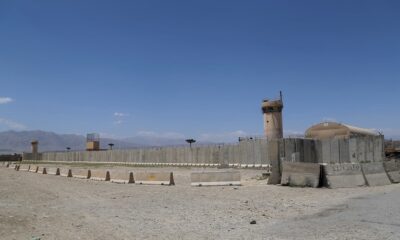
 Latest News3 days ago
Latest News3 days agoNo American military presence in Bagram: US defense official
-

 Sport4 days ago
Sport4 days agoAfghanistan A registers massive win over Ireland A in 4-day match
-
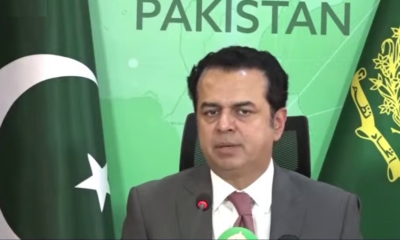
 Latest News3 days ago
Latest News3 days agoNo new deadline will be given for Afghan refugees: Pakistani official
-

 Latest News4 days ago
Latest News4 days agoPakistan warns it may expel thousands of Afghans hoping for resettlement in the West
-

 World5 days ago
World5 days agoTrump U-turns on tariffs but keeps trade war heat on China


